As a Synology user, you understand the importance of protecting your data and ensuring its security while remotely accessing it through your Network Attached Storage (NAS) system. Implementing a Virtual Private Network (VPN) service is a crucial step in securing your data and privacy. A VPN encrypts your online activities, safeguarding your information from unauthorized access—a vital measure, especially when using public Wi-Fi networks or accessing your data remotely.
A dependable VPN for Synology not only provides you with improved privacy but also offers a seamless experience while transferring files securely and streaming content without delays or buffering, even on geo-restricted platforms. Numerous VPNs are compatible with Synology NAS devices, but selecting the best one can make a significant difference in bolstering your security, speed, and overall user experience.
Key Takeaways
- Choosing the Best VPN for Synology enhances your data security and privacy while accessing your NAS remotely.
- The best VPNs for Synology offer fast servers, strong encryption, and advanced security features for seamless file transfers and streaming.
- When selecting a VPN for Synology, consider factors such as compatibility, ease of setup, privacy measures, and customer support to ensure the best overall experience.
Table of Contents
Best VPNs for Synology
When it comes to choosing the best VPN for your Synology NAS device, it’s essential to weigh various factors such as server locations, speed, security, and compatibility with Synology devices. This section will discuss some of the top VPNs for Synology to help you make an informed decision.
ExpressVPN stands out as a top choice due to its super-fast servers and advanced protocols that allow you to securely transfer files without any delays. With a 30-day money-back guarantee, you can try this VPN service with confidence.
CyberGhost VPN is another reliable option that combines ease of use and robust security features. Setting up CyberGhost with your Synology device is simple, and it also offers industry-standard OpenVPN encryption.
Surfshark is a budget-friendly alternative with an extensive server network, providing advanced security features like MultiHop, CleanWeb, and Whitelister. At just $2.30/month, it’s an affordable choice for those on a tight budget.
NordVPN is another top contender in the VPN market, known for its double-layered encryption and strict no-logs policy. It’s also compatible with Synology devices, providing you with a secure connection while accessing your file storage.
Private Internet Access (PIA) is another widely used VPN service with a large server network and compatibility with Synology NAS devices. PIA offers robust privacy features, making it a reliable option for secure file sharing.
IPVanish offers a high-speed connection, reliable security features, and compatibility with Synology devices, ensuring a seamless and secure file sharing experience.
Finally, PrivateVPN and VyprVPN also support all Synology protocols and offer a good balance between speed and security, making them ideal options for use with your Synology NAS.
By considering these VPN services, you’ll be able to find the best VPN for your Synology device to secure file sharing and protect your privacy online.
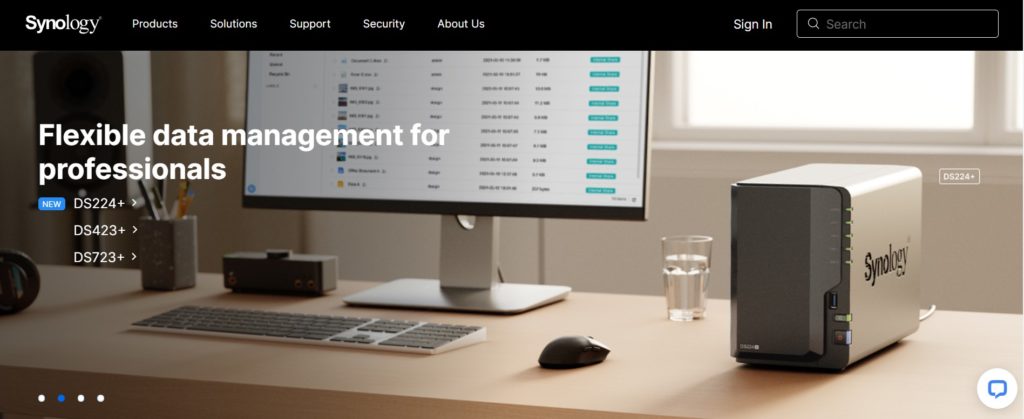
Features to Consider in a VPN
When selecting a VPN for your Synology NAS, there are several crucial features to consider ensuring optimal performance, privacy, and security.
First, consider the encryption offered by the VPN service. A reliable VPN should provide AES 256-bit encryption, which is also known as military-grade encryption. This encryption level ensures your data is secure while being transmitted over the internet.
The VPN protocol used is also an essential factor. OpenVPN protocol is a popular choice because of its open-source nature, providing a balance between speed and security. Additionally, look for a VPN with a strict no-logs policy that will not store or share your browsing data with third parties.
DNS leak protection is another vital feature to prevent your internet service provider (ISP) from monitoring your online activities. A VPN with built-in DNS leak protection will help you maintain your privacy even if there are vulnerabilities in your network.
Having an automatic kill switch is necessary, as it can automatically disconnect your internet connection if the VPN connection drops. This feature ensures that your personal information is not accidentally exposed over an unsecured network.
User-friendliness is essential, especially if you are new to using VPNs. Choose a VPN service that is easy to set up and use with your Synology device without encountering challenges.
Unlimited simultaneous connections will enable you to connect multiple devices to the VPN at the same time. This feature is helpful if you want to ensure that all your devices are secure while using the internet.
A money-back guarantee provides assurance that you can try out the VPN, and if unsatisfied, you can request a refund. This guarantee allows you to test the VPN and its features without any long-term commitment.
Look for a VPN provider that offers a vast server network to provide you with numerous connection options. A large network means that you can choose from various server locations, enabling you to access geo-restricted content and improve connection speeds.
Lastly, additional features like ad-blocker and unlimited bandwidth can enhance your online experience by blocking unwanted ads and ensuring that there are no limitations on your data usage.
By considering these features, you can confidently select a VPN service that best meets your needs and provides robust privacy and security for your Synology NAS.
Setting Up VPN on Synology
- Install VPN Server:
- Open Package Center.
- Search “VPN Server” and click Install.
- After it’s installed, open the VPN Server from the main menu.
- Set Up OpenVPN:
- In the VPN Server app, find the OpenVPN section.
- Check “Enable OpenVPN server.”
- Adjust settings like Dynamic IP address and VPN protocols.
- On your router, set port forwarding rules so VPN can reach your Synology NAS.
- Create a VPN Profile:
- On Synology NAS, go to Control Panel > Network.
- Click Network Interface > “Create” > “Create VPN Profile.”
- In the wizard, choose OpenVPN and fill in details like server address, username, and password.
- Upload the .ovpn file (get it from your VPN provider’s website).
- Stay Safe:
- Always keep your VPN active for protection.
- Update your VPN settings regularly for best security.
Done! Now your Synology NAS has an extra shield with the VPN.
Benefits of Using Synology With VPN
Using a VPN with your Synology NAS device offers multiple advantages that enhance your security, privacy, and overall user experience. Here are some of the most important:
- Stay Hidden: A VPN hides your online moves. No more snooping from hackers or even your own ISP.
- Speedy Transfers: Connect to the nearest VPN server and enjoy faster file uploads and downloads, especially when you’re remote.
- Global Access: Some content is blocked in certain regions. With a VPN, jump geoblocks and watch or listen to whatever you like.
- Extra Safety with RAM-only Servers: Some top VPNs use these. No data gets saved to hard drives, meaning even if there’s a breach, your info stays safe.
- Cool Features:
- Split Tunneling: Choose which data goes through the VPN and which uses regular internet.
- Kill Switch: If the VPN drops, your internet gets cut off automatically to keep you safe.
In short, pairing a VPN with your Synology NAS makes things secure, quick, and unrestricted. It’s a win-win!

Pros and Cons of VPNs for Synology
When choosing a VPN for your Synology NAS, it’s essential to weigh the pros and cons to find the right balance between performance, security, and value for money. Here, we will provide you with a neutral and concise overview to help you make an informed decision.
Pros:
- Speeds: High-quality VPNs offer fast and reliable connection speeds, minimizing lag and ensuring seamless streaming or file transfer. For instance, [ExpressVPN] is known for its super-fast servers, allowing you to quickly transfer files without delays.
- Simultaneous devices: Many VPNs allow multiple devices to connect at the same time, enabling you to secure your entire home or office network. For example, PrivateVPN supports up to 10 simultaneous device connections.
- China: If you live in a country with strict internet censorship, such as China, some VPNs can bypass these restrictions and provide access to blocked content. Make sure to choose one that specifically offers this feature.
- Security: Using a VPN with your Synology NAS encrypts your traffic, protecting your personal information and activities from being monitored by your internet service provider or other third-parties.
Cons:
- Value for money: Not all VPNs are created equal, and some may not provide the features and speeds that justify their price. Research and compare services based on their performance, servers offered, and overall user experience.
- Dashboard: Some VPNs have complex dashboards or setup processes, which may be difficult for non-tech savvy users. Ensure the VPN you choose has a user-friendly interface and offers guides for Synology NAS integration.
- Privacy Policy: A VPN’s privacy policy is crucial for protecting your personal information. Verify that the VPN you choose has a zero-logs policy and strong encryption methods. Otherwise, you risk exposing your data to unwanted parties.
- Internet Service Provider: It’s essential to keep in mind that your internet service provider (ISP) may still be able to monitor your internet activity when using a VPN. Choosing a VPN with a solid track record of protecting user privacy is key to circumventing potential ISP monitoring.
Frequently Asked Questions | Best VPN for Synology
Which VPN is recommended for Synology NAS?
There are several VPNs recommended for Synology NAS, such as [ExpressVPN] and [NordVPN]. Both offer fast servers, strong security, and support for Synology devices. Consider your personal preferences, budget, and needs when choosing the most suitable VPN for your Synology NAS.
How to set up a VPN on Synology?
Setting up a VPN on Synology involves configuring the VPN client within the Synology DSM software. Additionally, you need to connect your NAS to the VPN server through the Control Panel, DDNS, and VPN Client. To learn more about the process and troubleshoot potential issues, visit the official Synology FAQ.
Is it better to use Synology’s native VPN or OpenVPN?
Both Synology’s native VPN and OpenVPN offer advantages. Synology’s native VPN integrates smoothly with its DSM software, making setup and management easy. OpenVPN, on the other hand, is an open-source solution with extensive compatibility, allowing you to use it on a wide range of devices and systems. Ultimately, your choice will depend on your priorities regarding usability, compatibility, and support from your preferred VPN service.
How can I access my local network with Synology VPN?
After setting up a VPN connection on your Synology NAS, you should still be able to access your local network resources as usual. The VPN connection will tunnel your NAS’s internet traffic through the VPN server, providing additional privacy and security. However, local network access should remain unaffected. If you experience issues, consult with your VPN provider or check the Synology knowledge base for guidance.
Are there free VPN options for Synology?
Although there are some free VPN options available, they may not offer the same level of performance, security, or support as paid services. It’s crucial to choose a VPN provider that meets your needs and prioritizes your privacy and security. Consider trying a premium VPN with a money-back guarantee, such as ExpressVPN or NordVPN, to evaluate its suitability for your Synology NAS without financial risk.
How does NordVPN work with Synology?
NordVPN is compatible with Synology NAS and offers great performance, fast speeds, strong security, and privacy protocols. You can set it up on your Synology device following the provider’s guidelines. NordVPN also provides customer support to assist you in configuring and troubleshooting your Synology VPN connection.
- Best VPN for Synology: Top Picks for Secure and Seamless Connection - April 2, 2025
- Webroot vs Bitdefender: Objective Comparison for Informed Decisions - April 2, 2025
- SurfShark vs ExpressVPN Face-Off - April 2, 2025
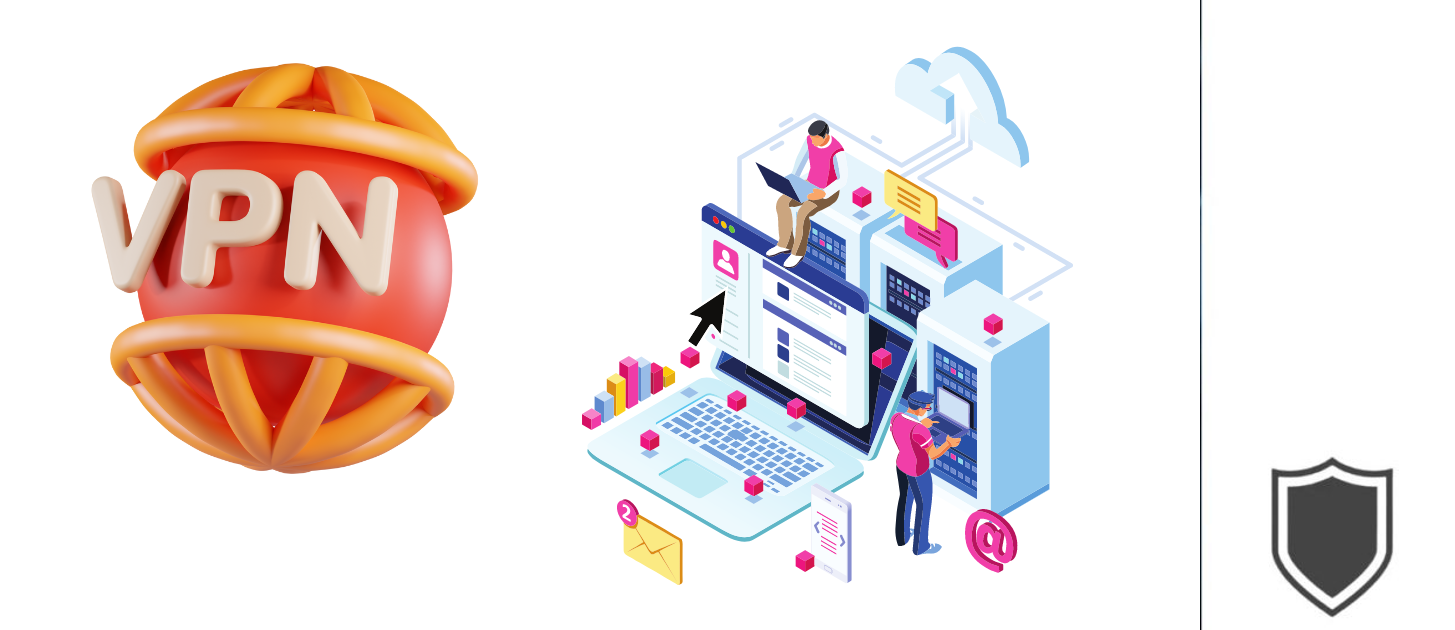

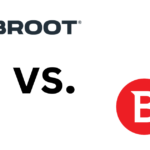


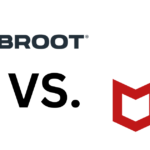
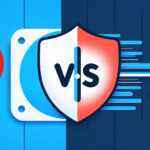




1 thought on “Best VPN for Synology: Top Picks for Secure and Seamless Connection”